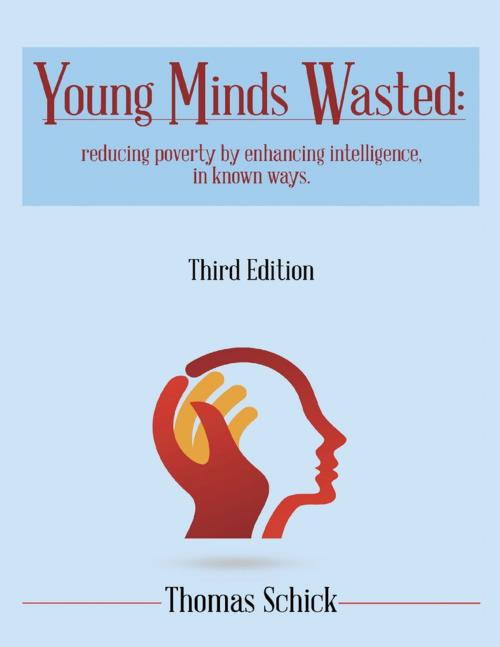Young Minds Wasted: Reducing Poverty By Enchancing Intelligence, In Known Ways.
Nonfiction, Science & Nature, Science| Author: | Thomas Schick | ISBN: | 9781483494418 |
| Publisher: | Lulu Publishing Services | Publication: | April 19, 2019 |
| Imprint: | Lulu Publishing Services | Language: | English |
| Author: | Thomas Schick |
| ISBN: | 9781483494418 |
| Publisher: | Lulu Publishing Services |
| Publication: | April 19, 2019 |
| Imprint: | Lulu Publishing Services |
| Language: | English |
For thousands of years people reasonably believed that poverty was an integral component of society. This view is no longer valid. Surely, there are many causes of poverty, but the most important and widespread cause is limited intelligence resulting from inadequate nutrition, poor health, and other environmental constraints common among the poor. These not only limit intelligence but also capability and employability; accordingly, poverty’s circular pattern exists, limited intelligence causes poverty, and poverty causes limited intelligence. We now know how to break this circular pattern. As shown in this book, many interventions enhance capability and intelligence, especially of the disadvantaged, with costs far more than offset by savings. The poor, worldwide, can much more closely reach their potential intelligence. Accordingly, the middle-class grows, demand for goods and services increases, benefiting, of course, those providing goods and services.
For thousands of years people reasonably believed that poverty was an integral component of society. This view is no longer valid. Surely, there are many causes of poverty, but the most important and widespread cause is limited intelligence resulting from inadequate nutrition, poor health, and other environmental constraints common among the poor. These not only limit intelligence but also capability and employability; accordingly, poverty’s circular pattern exists, limited intelligence causes poverty, and poverty causes limited intelligence. We now know how to break this circular pattern. As shown in this book, many interventions enhance capability and intelligence, especially of the disadvantaged, with costs far more than offset by savings. The poor, worldwide, can much more closely reach their potential intelligence. Accordingly, the middle-class grows, demand for goods and services increases, benefiting, of course, those providing goods and services.















